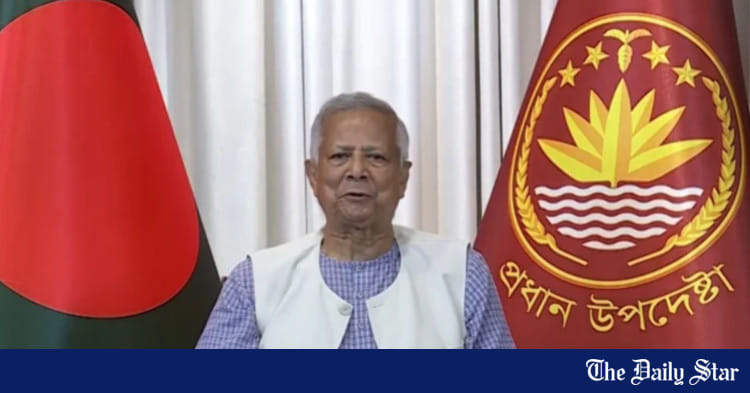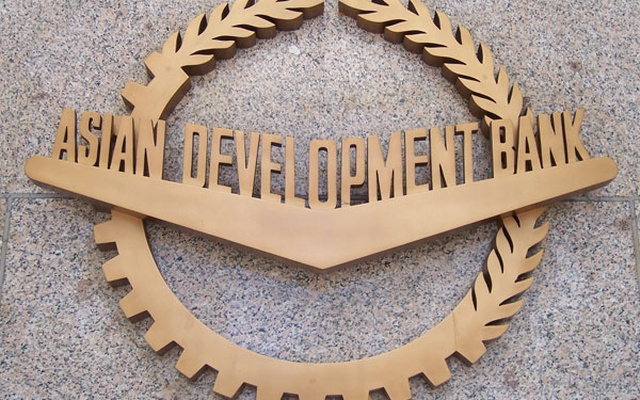Saif
Senior Member
- Joined
- Jan 24, 2024
- Messages
- 16,488
- Likes
- 8,138
- Nation

- Residence

- Axis Group


Strategic growth for thriving cottage industry
The country's cottage industry, recognised as the backbone of small entrepreneurs and rural employment, has long suffered due to various challenges, primarily stemming from a lack of structured data. Until recently, there was no comprehensive database detailing the sector, which hindered effective
Strategic growth for thriving cottage industry
Wasi Ahmed
Published :
Mar 26, 2025 00:16
Updated :
Mar 26, 2025 00:16

The country's cottage industry, recognised as the backbone of small entrepreneurs and rural employment, has long suffered due to various challenges, primarily stemming from a lack of structured data. Until recently, there was no comprehensive database detailing the sector, which hindered effective planning at both the macro and micro levels. The absence of a structured database has long impeded the planned growth of this sector.
Recognising this gap, the Bangladesh Bureau of Statistics (BBS) conducted an extensive field survey some time ago to compile a detailed database on the cottage industry. The survey captures crucial aspects such as the overall characteristics of different sub-sectors, regional variations, and specific challenges facing cottage industries across the country.
According to the survey, Bangladesh has a total of 830,000 cottage industry units, employing over 29 million workers. An encouraging aspect is that nearly 97 per cent of these units operate throughout the year, indicating the resilience and sustainability of the industry. The survey also highlights that the sector contributes significantly to the economy, producing goods worth approximately Tk 395.38 billion annually, with a value addition of about Tk 314.86 billion.
A striking feature of the survey findings is the geographical distribution of cottage industry units. Around 56.3 per cent of these units are located in rural areas, with 20 per cent situated at the homesteads of their owners. This underscores the sector's role in supporting rural livelihoods and sustaining employment opportunities outside urban centres.
However, there are also some concerning findings. The survey reveals that approximately 16 per cent of the workforce employed in the cottage industry does not receive any wages, as they consist of family members engaged in the production process. The lack of wage recognition renders their labour unproductive in terms of economic measurement since it is not accounted for in the manufacturing cost structure. This issue needs to be addressed to ensure that family labour is appropriately valued and contributes to the financial stability of cottage industry workers.
The highest concentration of cottage industry units-around 30 per cent-is found in the Dhaka division, while the lowest is in the Sylhet division. Despite their diverse manufacturing processes, these industries commonly face fundamental challenges that limit their growth potential. One of the key issues is the definition of cottage industries in the government's industrial policy, which many believe is outdated and restrictive.
Under the current definition, a cottage industry is characterised as a unit employing no more than ten workers and operating with a capital of less than Tk 500,000. This definition fails to capture the evolving nature of cottage industries, particularly in the age of technological advancements. By setting strict limitations on workforce size and capital investment, the definition inadvertently discourages growth and scalability. As a result, a large proportion of cottage industry units remain unregistered with relevant government agencies such as the Bangladesh Small and Cottage Industries Corporation (BSCIC) or local government bodies, reflecting the industry's lack of reliance on state support mechanisms. This lack of registration limits their access to financial assistance, technology transfer, training programmes, and other essential resources that could enhance productivity and competitiveness.
The overall scenario of the cottage industry remains chaotic due to these structural and operational challenges. However, there are opportunities to organise and strengthen the sector through systematic interventions. A key strategy could be the establishment of support programmes focused on product development, diversification, and adaptation for both domestic and export markets.
Technology transfer is another crucial area for improvement. Many cottage industry units still rely on outdated tools and traditional production methods, limiting their efficiency and quality standards. Introducing modern equipment and innovative techniques can significantly boost productivity and enhance the market appeal of cottage industry products. Additionally, the use of improved raw materials and production inputs can lead to better product quality and higher profit margins.
Access to credit remains a major constraint for cottage industry entrepreneurs. Government policies should facilitate credit access tailored to the specific needs of small-scale producers. If the authorities, particularly the BSCIC, actively monitor and support the activities of this vast yet disorganized sector, credit facilities can be structured to provide meaningful assistance. Many cottage industry entrepreneurs struggle with securing loans due to the lack of collateral or formal business registration. Addressing these issues through financial inclusion initiatives can empower small entrepreneurs to expand their businesses and improve their livelihoods.
A holistic approach is necessary to transform the cottage industry into a well-organised and thriving sector. Policymakers should revise the existing definition of cottage industries to reflect the changing dynamics of small-scale production and entrepreneurship. Encouraging formal registration through incentives, rather than mandates, can help integrate cottage industry units into mainstream economic activities while allowing them to retain their operational flexibility.
Marketing support is another critical area that requires attention. Many cottage industry products have strong potential in both domestic and international markets, but limited market exposure prevents them from achieving higher profitability. Establishing dedicated platforms for cottage industry products, such as trade fairs, online marketplaces, and branding initiatives, can help entrepreneurs reach a broader customer base.
Furthermore, skill development and training programmes tailored to the needs of cottage industry workers can enhance productivity and innovation. Training in areas such as business management, financial literacy, and modern production techniques can equip entrepreneurs with the knowledge and skills needed to scale their businesses sustainably.
Wasi Ahmed
Published :
Mar 26, 2025 00:16
Updated :
Mar 26, 2025 00:16
The country's cottage industry, recognised as the backbone of small entrepreneurs and rural employment, has long suffered due to various challenges, primarily stemming from a lack of structured data. Until recently, there was no comprehensive database detailing the sector, which hindered effective planning at both the macro and micro levels. The absence of a structured database has long impeded the planned growth of this sector.
Recognising this gap, the Bangladesh Bureau of Statistics (BBS) conducted an extensive field survey some time ago to compile a detailed database on the cottage industry. The survey captures crucial aspects such as the overall characteristics of different sub-sectors, regional variations, and specific challenges facing cottage industries across the country.
According to the survey, Bangladesh has a total of 830,000 cottage industry units, employing over 29 million workers. An encouraging aspect is that nearly 97 per cent of these units operate throughout the year, indicating the resilience and sustainability of the industry. The survey also highlights that the sector contributes significantly to the economy, producing goods worth approximately Tk 395.38 billion annually, with a value addition of about Tk 314.86 billion.
A striking feature of the survey findings is the geographical distribution of cottage industry units. Around 56.3 per cent of these units are located in rural areas, with 20 per cent situated at the homesteads of their owners. This underscores the sector's role in supporting rural livelihoods and sustaining employment opportunities outside urban centres.
However, there are also some concerning findings. The survey reveals that approximately 16 per cent of the workforce employed in the cottage industry does not receive any wages, as they consist of family members engaged in the production process. The lack of wage recognition renders their labour unproductive in terms of economic measurement since it is not accounted for in the manufacturing cost structure. This issue needs to be addressed to ensure that family labour is appropriately valued and contributes to the financial stability of cottage industry workers.
The highest concentration of cottage industry units-around 30 per cent-is found in the Dhaka division, while the lowest is in the Sylhet division. Despite their diverse manufacturing processes, these industries commonly face fundamental challenges that limit their growth potential. One of the key issues is the definition of cottage industries in the government's industrial policy, which many believe is outdated and restrictive.
Under the current definition, a cottage industry is characterised as a unit employing no more than ten workers and operating with a capital of less than Tk 500,000. This definition fails to capture the evolving nature of cottage industries, particularly in the age of technological advancements. By setting strict limitations on workforce size and capital investment, the definition inadvertently discourages growth and scalability. As a result, a large proportion of cottage industry units remain unregistered with relevant government agencies such as the Bangladesh Small and Cottage Industries Corporation (BSCIC) or local government bodies, reflecting the industry's lack of reliance on state support mechanisms. This lack of registration limits their access to financial assistance, technology transfer, training programmes, and other essential resources that could enhance productivity and competitiveness.
The overall scenario of the cottage industry remains chaotic due to these structural and operational challenges. However, there are opportunities to organise and strengthen the sector through systematic interventions. A key strategy could be the establishment of support programmes focused on product development, diversification, and adaptation for both domestic and export markets.
Technology transfer is another crucial area for improvement. Many cottage industry units still rely on outdated tools and traditional production methods, limiting their efficiency and quality standards. Introducing modern equipment and innovative techniques can significantly boost productivity and enhance the market appeal of cottage industry products. Additionally, the use of improved raw materials and production inputs can lead to better product quality and higher profit margins.
Access to credit remains a major constraint for cottage industry entrepreneurs. Government policies should facilitate credit access tailored to the specific needs of small-scale producers. If the authorities, particularly the BSCIC, actively monitor and support the activities of this vast yet disorganized sector, credit facilities can be structured to provide meaningful assistance. Many cottage industry entrepreneurs struggle with securing loans due to the lack of collateral or formal business registration. Addressing these issues through financial inclusion initiatives can empower small entrepreneurs to expand their businesses and improve their livelihoods.
A holistic approach is necessary to transform the cottage industry into a well-organised and thriving sector. Policymakers should revise the existing definition of cottage industries to reflect the changing dynamics of small-scale production and entrepreneurship. Encouraging formal registration through incentives, rather than mandates, can help integrate cottage industry units into mainstream economic activities while allowing them to retain their operational flexibility.
Marketing support is another critical area that requires attention. Many cottage industry products have strong potential in both domestic and international markets, but limited market exposure prevents them from achieving higher profitability. Establishing dedicated platforms for cottage industry products, such as trade fairs, online marketplaces, and branding initiatives, can help entrepreneurs reach a broader customer base.
Furthermore, skill development and training programmes tailored to the needs of cottage industry workers can enhance productivity and innovation. Training in areas such as business management, financial literacy, and modern production techniques can equip entrepreneurs with the knowledge and skills needed to scale their businesses sustainably.














































